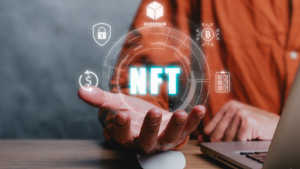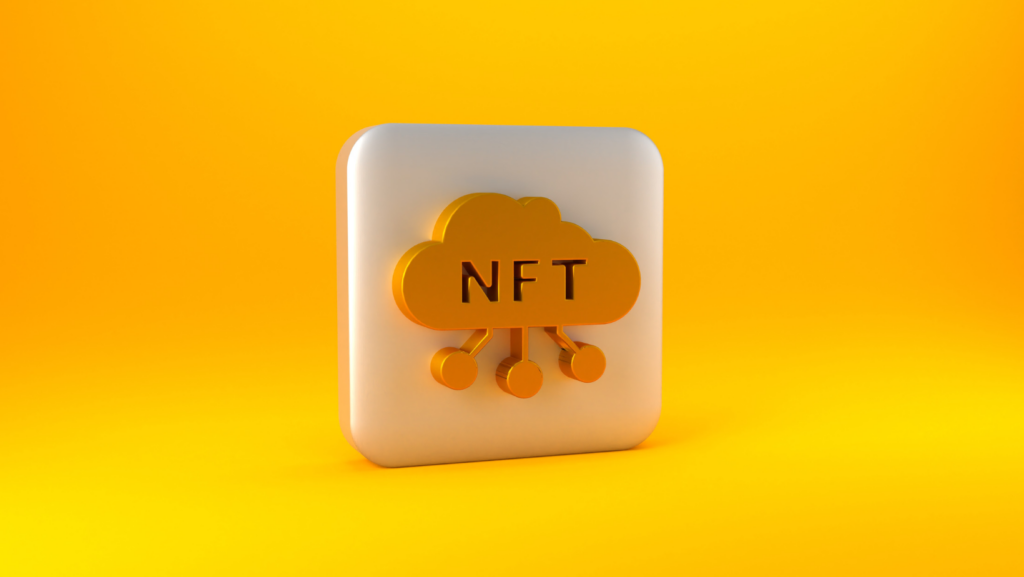The digital landscape buzzes with excitement around non-fungible tokens (NFTs), which have surged beyond the realm of digital art into more practical applications. As blockchain technology evolves, so do the possibilities for NFTs, transforming them into more than just collectibles. They are now paving the way for unique use cases across various industries, demonstrating their potential to revolutionize everyday transactions and interactions.
NFT Uses Cases
 Non-fungible tokens (NFTs), distinct digital assets on a blockchain, represent ownership of unique items, both virtual and real-world. Unlike fungible tokens like cryptocurrencies, NFTs have unique identifiers that make them irreplaceable and uninterchangeable, enhancing their value and utility in various sectors. These tokens leverage blockchain technology to ensure the authenticity and traceability of assets, covering a wide range of items from digital artwork and music to real estate and beyond. By enabling digital ownership, NFTs are transforming traditional transaction models and interaction methods across multiple industries. Their ability to verify authenticity makes them essential in securing digital ownership and managing intellectual property rights in the digital era.
Non-fungible tokens (NFTs), distinct digital assets on a blockchain, represent ownership of unique items, both virtual and real-world. Unlike fungible tokens like cryptocurrencies, NFTs have unique identifiers that make them irreplaceable and uninterchangeable, enhancing their value and utility in various sectors. These tokens leverage blockchain technology to ensure the authenticity and traceability of assets, covering a wide range of items from digital artwork and music to real estate and beyond. By enabling digital ownership, NFTs are transforming traditional transaction models and interaction methods across multiple industries. Their ability to verify authenticity makes them essential in securing digital ownership and managing intellectual property rights in the digital era.
Key NFT Use Cases
NFTs, or non-fungible tokens, extend their utility far beyond the realm of digital art. Innovations in how these tokens are used highlight the breadth of their applications across various sectors.
Art and Collectibles
Artists and collectors utilize NFTs to guarantee the uniqueness and ownership of digital art pieces including paintings, sculptures, and limited edition collectibles. Platforms like OpenSea and Rarible facilitate these exchanges, ensuring that creators can directly profit from their works.
Entertainment and Media
 In entertainment, NFTs serve as tools for distributing and monetizing content. Musicians and filmmakers offer exclusive content access, such as unreleased tracks and special edition films, through NFT sales, fostering a closer connection between creators and consumers.
In entertainment, NFTs serve as tools for distributing and monetizing content. Musicians and filmmakers offer exclusive content access, such as unreleased tracks and special edition films, through NFT sales, fostering a closer connection between creators and consumers.
Real Estate and Virtual Lands
NFTs represent ownership in both physical and virtual properties. Platforms like Decentraland allow users to purchase and trade virtual land parcels securely, which they can develop just as they would physical real estate.
Identity Verification
Through tokenizing personal identifiers, NFTs enhance security in digital interactions. They ensure that identity verification processes are both secure and transparent, pivotal in sectors like finance and e-commerce where verifying personal identity is crucial.
By exploiting blockchain technology, these use cases not only showcase NFTs’ versatility but also their potential to revolutionize transaction models across industries.
Benefits of NFT Use Cases
Enhanced Asset Security
Asset security improves markedly with NFTs, ensuring that all transactions recorded on the blockchain are immutable and transparent. If a change occurs in ownership, it reflects accurately across the network.
Increased Market Efficiency
Market efficiency escalates as NFTs eliminate intermediaries in transactions. Artists and creators receive their earnings directly without delays or deductions, optimizing profitability.
Authenticity and Provenance Verification
NFTs assist in verifying the authenticity of assets. Each token includes a unique identifier that traces its history, thereby confirming its originality and ownership lineage.
Access to New Markets and Demographics
NFTs open up access to global markets where digital and virtual assets are appreciated. This exposure attracts diverse demographics, extending market reach and increasing potential income streams for creators.
Continuous Revenue Streams
Rights and royalties can be programmed into NFTs, allowing creators to earn continuously from future resales or usage, creating a sustainable income model.
Challenges and Limitations
 Addressing the challenges and limitations of NFTs is crucial for their broader adoption and understanding. Despite their revolutionary potential, NFTs face significant hurdles, such as scalability issues within blockchain networks that lead to high energy consumption and slow transaction times. For instance, popular platforms like Ethereum often experience network congestion, which significantly raises transaction fees during peak times. Regulatory uncertainty also complicates the use of NFTs, as lawmakers struggle to keep pace with the rapid advancement of technology. Additionally, the current lack of standardized practices across platforms may hinder interoperability and user experience. Finally, NFTs confront criticisms related to the authenticity of digital rights, as the tokenization process does not inherently prevent copyright infringement, posing ongoing challenges for creators and buyers in verifying the originality of digital assets.
Addressing the challenges and limitations of NFTs is crucial for their broader adoption and understanding. Despite their revolutionary potential, NFTs face significant hurdles, such as scalability issues within blockchain networks that lead to high energy consumption and slow transaction times. For instance, popular platforms like Ethereum often experience network congestion, which significantly raises transaction fees during peak times. Regulatory uncertainty also complicates the use of NFTs, as lawmakers struggle to keep pace with the rapid advancement of technology. Additionally, the current lack of standardized practices across platforms may hinder interoperability and user experience. Finally, NFTs confront criticisms related to the authenticity of digital rights, as the tokenization process does not inherently prevent copyright infringement, posing ongoing challenges for creators and buyers in verifying the originality of digital assets.
Future Prospects of NFTs
The potential of NFTs extends far beyond today’s applications. As technology evolves and regulatory frameworks become clearer, the obstacles currently facing NFTs are likely to diminish leading to even broader adoption across sectors. The ongoing development in blockchain technology promises to enhance the scalability and efficiency of NFTs making them more accessible and practical for everyday use. The future of NFTs holds a promise of revolutionizing how we perceive and interact with digital ownership and authenticity paving the way for innovative uses that we’ve yet to imagine.



